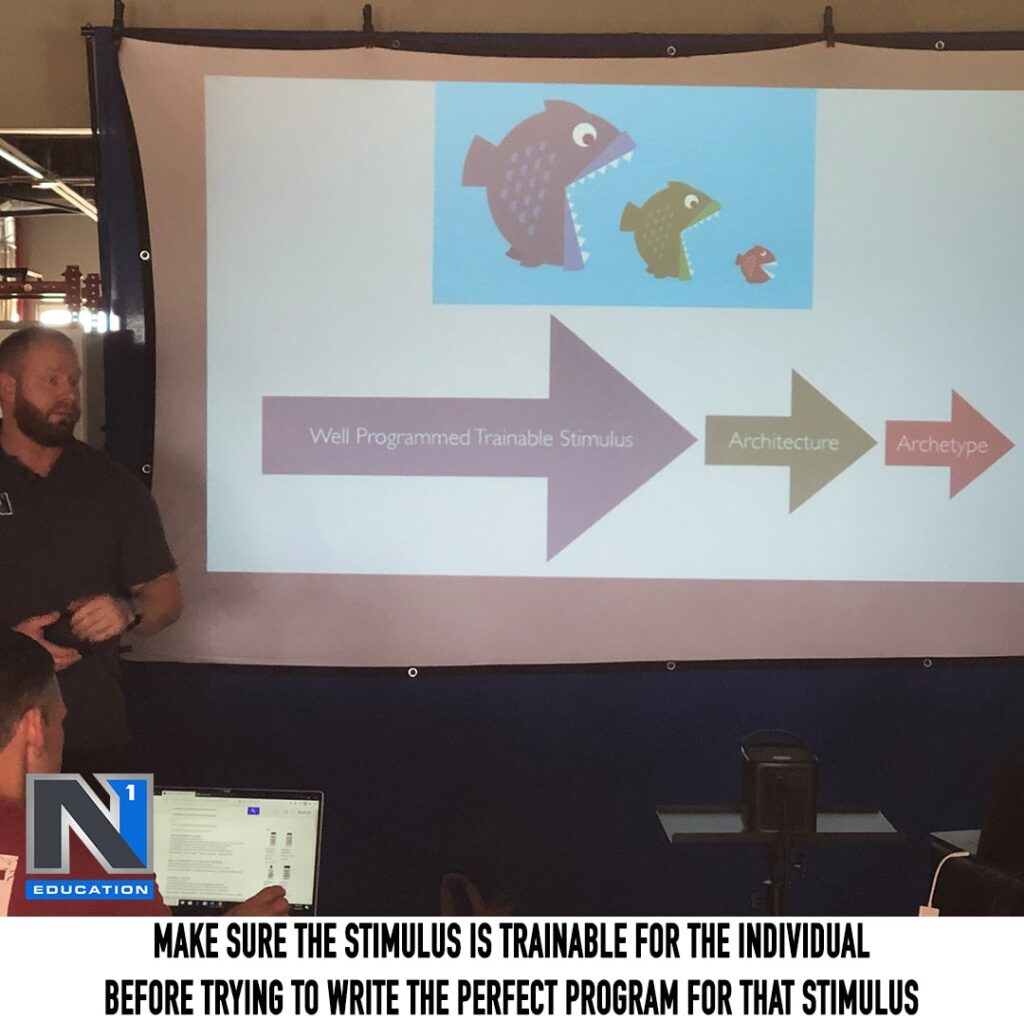If you don’t pick a training stimulus that suits the individual, focusing on the minutiae of writing the “perfect workout” is futile.
For example, if someone is struggling with poor sleep and low energy levels, sending them into a highly metabolic training program is likely one of the worse options.
Learning how different training stimuli will tax the body and what biomarkers to look for is a much more important skill than writing programs that look really good on paper. Sets, reps, exercise selection, tempo, rest, etc all matter, but only to the degree that they help you achieve a training effect (stimulus) that results in a positive adaptation.
Not everyone is prepared for any stimulus at any time, or has the ability to recover from it. Learning to assess and program based on what the individual needs is a key skill we focus on developing in our students through the online courses.

If you don’t pick a training stimulus that suits the individual, focusing on the minutiae of writing the “perfect workout” is futile.
For example, if someone is struggling with poor sleep and low energy levels, sending them into a highly metabolic training program is likely one of the worse options.
Learning how different training stimuli will tax the body and what biomarkers to look for is a much more important skill than writing programs that look really good on paper. Sets, reps, exercise selection, tempo, rest, etc all matter, but only to the degree that they help you achieve a training effect (stimulus) that results in a positive adaptation.
Not everyone is prepared for any stimulus at any time, or has the ability to recover from it. Learning to assess and program based on what the individual needs is a key skill we focus on developing in our students through the online courses.
Course 01 – Anatomy, Execution, & Biomechanics
Course 02 – Nutrition & Program Design
Course 03 – Assessment & Optimization of Sleep, Digestion, & Stress
(requires completion of Course 02)
Online Trainer Certification (all 3 courses) – $750 Discount

Please log in to access the menu.